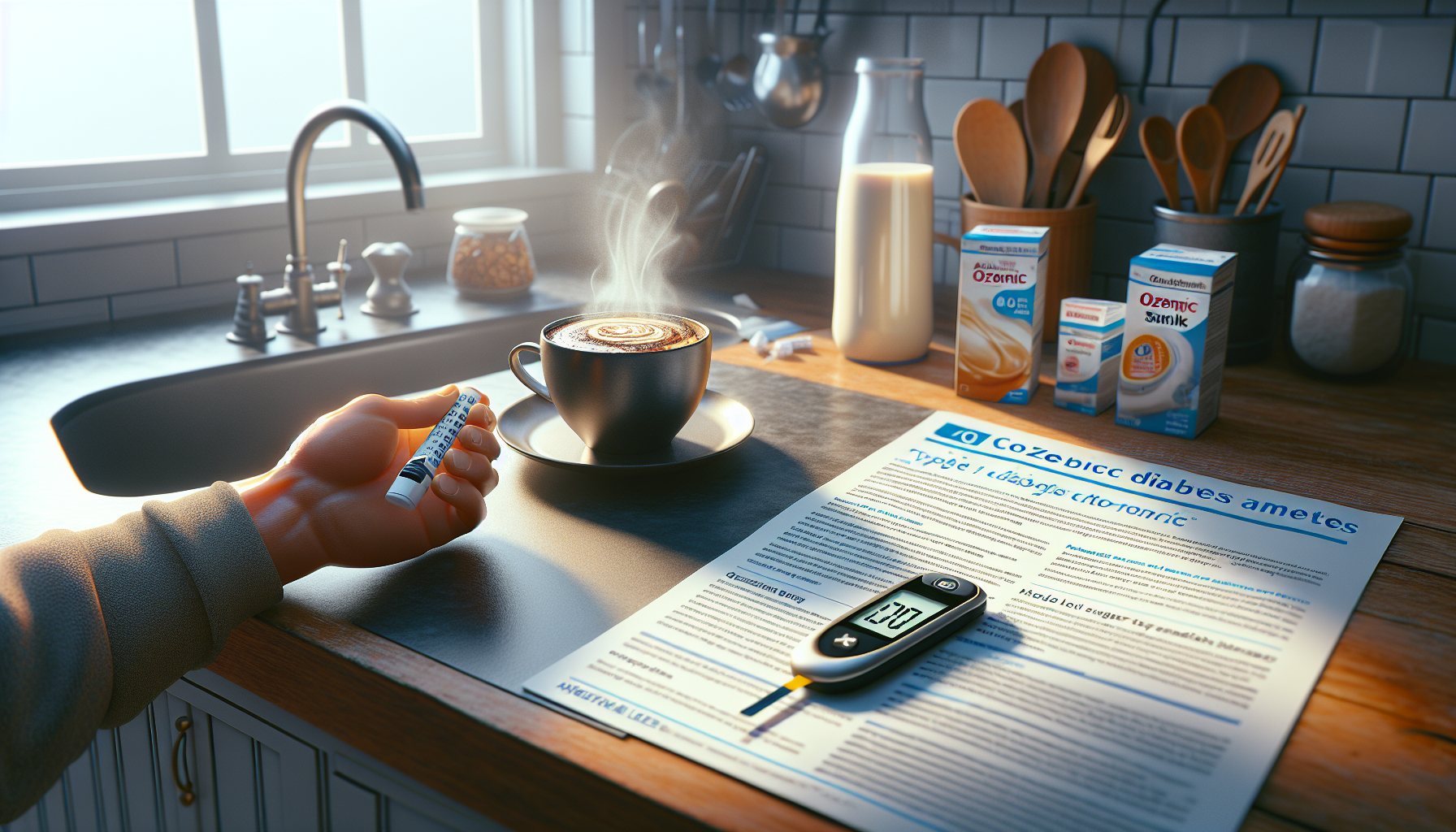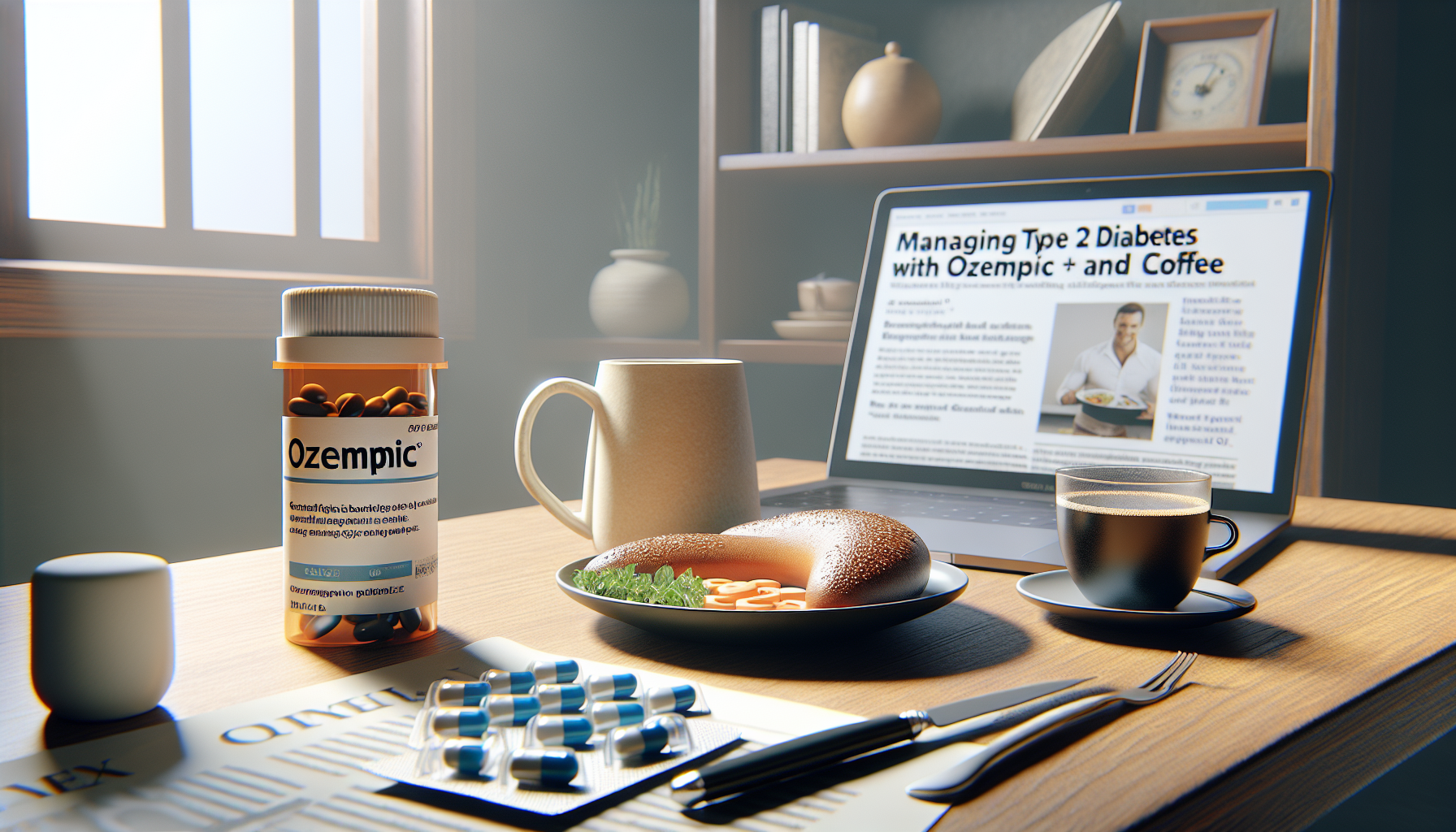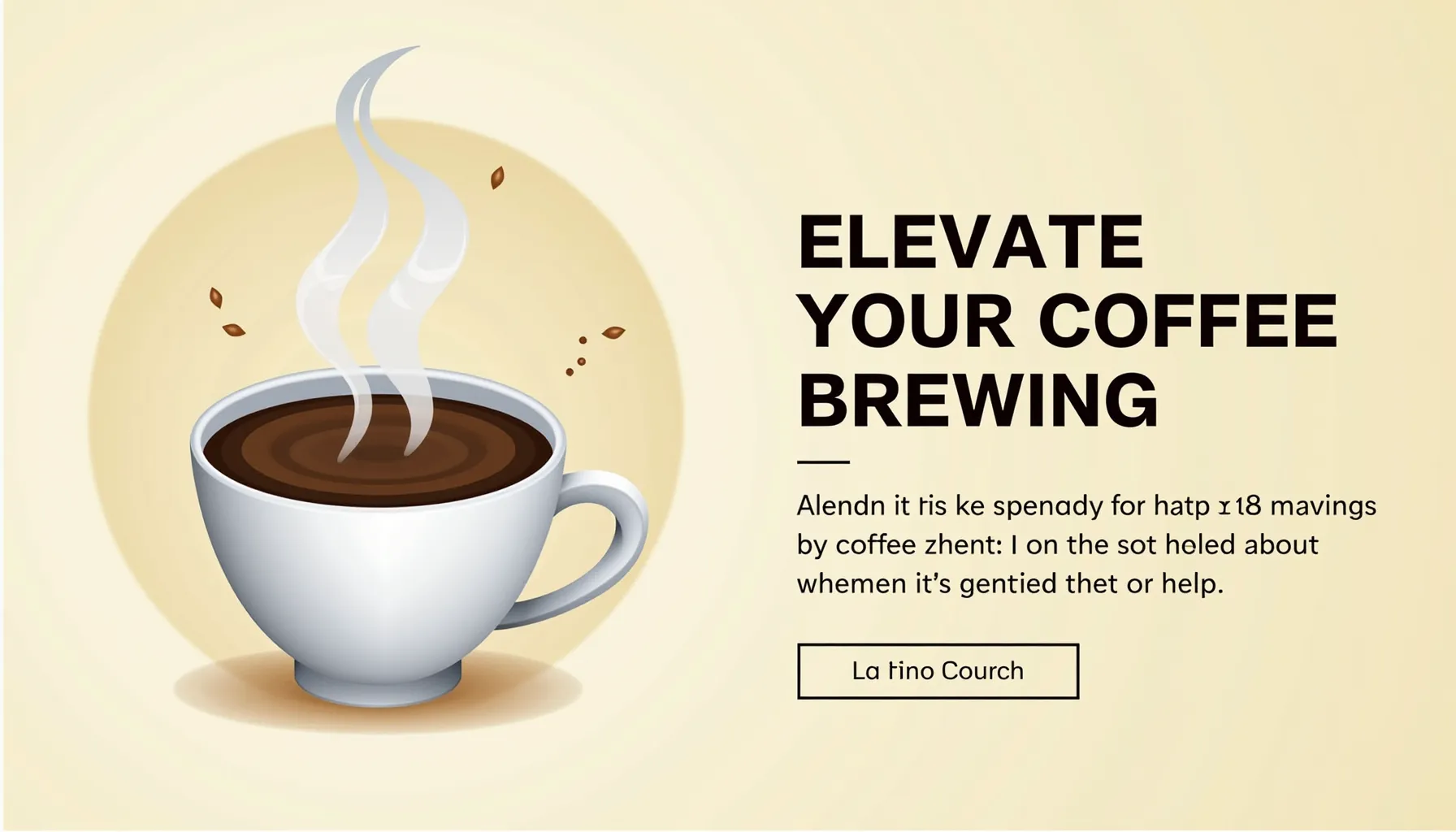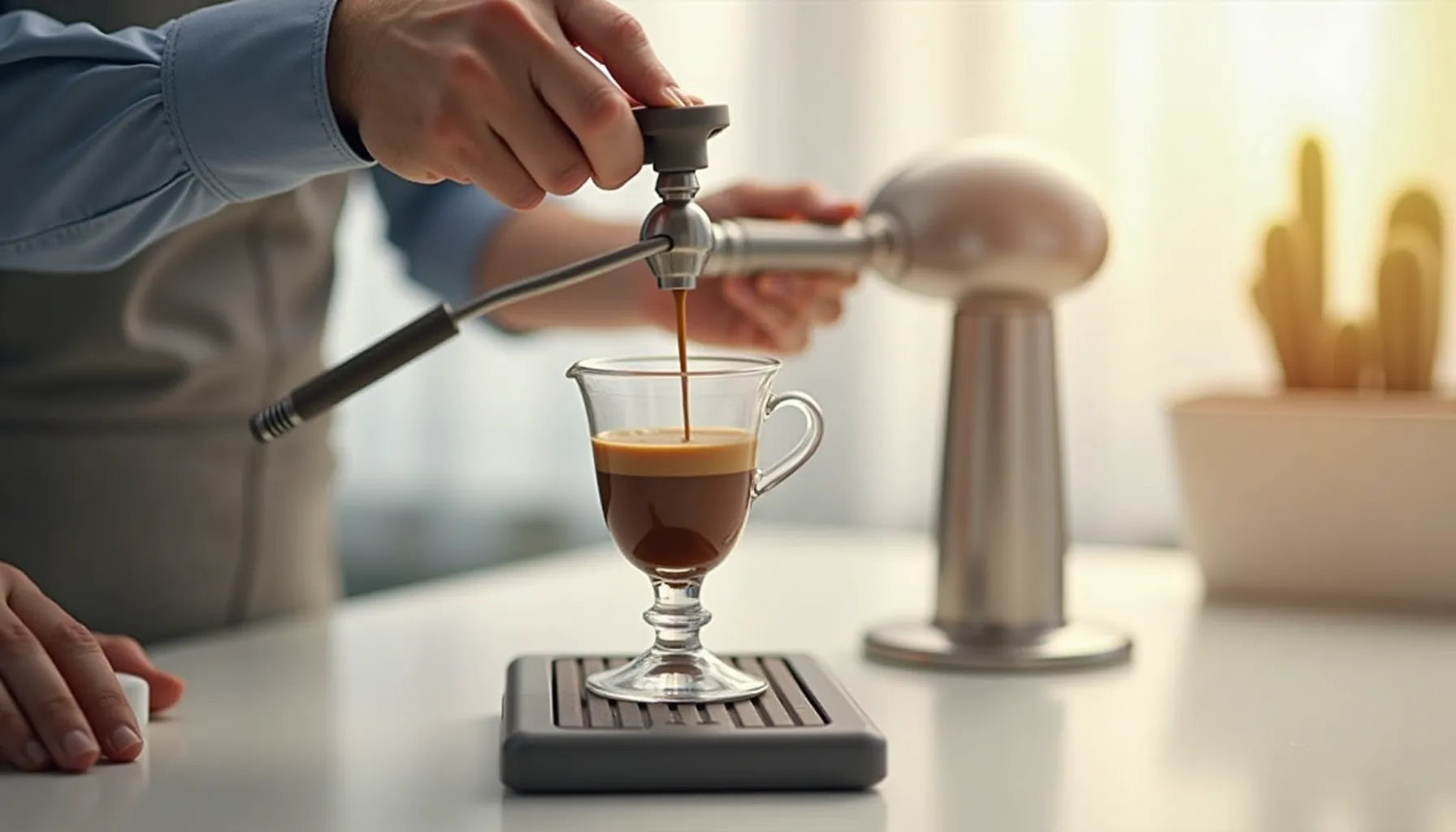Ozempic and Coffee: Balancing Diabetes Management with Your Daily Brew
For those managing diabetes with Ozempic and coffee as part of their daily routine, understanding how these two interact is crucial. Ozempic, a popular medication for type 2 diabetes and weight management, has transformed many lives. But how does it mesh with that morning cup of joe?
This comprehensive guide delves into the relationship between Ozempic and coffee consumption, exploring potential benefits, risks, and best practices. We'll examine how coffee affects blood sugar levels, its impact on Ozempic's effectiveness, and ways to optimize your coffee intake while on this medication.
Whether you're a coffee enthusiast concerned about your Ozempic regimen or simply curious about how to balance your diabetes management with your caffeine fix, this article provides valuable insights to help you make informed decisions about your health and lifestyle choices.
Key Takeaways:
- Moderate coffee consumption is generally safe for Ozempic users
- Coffee may affect blood sugar levels, requiring careful monitoring
- Timing and preparation of coffee can influence its impact on Ozempic's effectiveness
- Be mindful of coffee additives that could interfere with weight management goals
- Individual responses vary; consult healthcare providers for personalized advice

Understanding Ozempic: Mechanism and Benefits
What is Ozempic?
Ozempic, also known by its generic name semaglutide, is a groundbreaking medication that's been making waves in the world of diabetes management and weight loss. As a GLP-1 receptor agonist, it's designed to mimic a hormone that targets areas of the brain responsible for regulating appetite and food intake.
The FDA gave Ozempic the green light in 2017 for treating type 2 diabetes, and it's since become a go-to option for many healthcare providers. Its ability to help manage blood sugar levels while promoting weight loss has made it a game-changer for those struggling with diabetes and obesity.
How Ozempic works in the body
Enhancing insulin production
Ozempic's primary job is to boost insulin production in your body. It does this by mimicking the action of GLP-1, a hormone that tells your pancreas to release more insulin when your blood sugar rises. This helps keep your glucose levels in check, which is crucial for managing diabetes.
Appetite suppression and weight management
But Ozempic isn't just about controlling blood sugar. It also works on your brain to reduce appetite and food cravings. By slowing down digestion and making you feel fuller for longer, it can lead to significant weight loss over time. This dual action makes it a powerful tool in the fight against both diabetes and obesity.
Typical dosage and administration
Starting Ozempic is a gradual process. Most folks begin with a low dose of 0.25 mg once a week, injected under the skin. After a month, the dose usually bumps up to 0.5 mg weekly. Some people might need to increase to 1 mg per week for the best results.
It's important to remember that everyone's journey with Ozempic is unique. Your doctor will work with you to find the right dose that balances effectiveness with minimal side effects. Sticking to the prescribed schedule and following your doctor's instructions is key to getting the most out of this medication.
The Intersection of Ozempic and Coffee
Safety considerations
Lack of direct drug interactions
Good news for coffee lovers on Ozempic: there's no direct interaction between your morning brew and your medication. You can breathe easy knowing that sipping on coffee won't directly interfere with how Ozempic works in your body. However, it's not quite as simple as drinking as much coffee as you want without a care in the world.
Potential impact on Ozempic's effectiveness
While coffee doesn't directly mess with Ozempic, it can indirectly affect its performance. Caffeine can cause short-term spikes in blood sugar levels, which might counteract some of Ozempic's blood sugar-lowering effects. It's like trying to row a boat upstream – you're still making progress, but it might be a bit slower than you'd like.
Managing side effects
Gastrointestinal issues
Ozempic is known for causing some tummy troubles, especially when you're first starting out. Adding coffee to the mix might make these issues worse for some people. Coffee can increase stomach acid production and speed up digestion, which could amplify nausea or diarrhea that some Ozempic users experience.
Hydration and nausea control
On the flip side, staying hydrated is crucial when you're on Ozempic, and coffee can actually help with this. While it's true that caffeine has a mild diuretic effect, the water in coffee more than makes up for it. Just be mindful not to rely solely on coffee for your fluid intake. Balancing your coffee consumption with plenty of water can help keep nausea at bay and support your body's functions.
Weight management synergies
Appetite suppression
Here's where things get interesting. Both Ozempic and coffee have appetite-suppressing effects. Ozempic works by slowing down digestion and signaling fullness to your brain, while coffee can temporarily reduce feelings of hunger. When combined, these effects might give you an extra edge in managing your appetite and supporting your weight loss goals.
Metabolic effects
Coffee has been shown to boost metabolism slightly, which could complement Ozempic's weight management benefits. The caffeine in coffee can increase your metabolic rate, helping you burn a few extra calories throughout the day. However, it's important to remember that this effect is modest and shouldn't be relied upon as a primary weight loss strategy.
Optimizing Coffee Consumption for Ozempic Users
Recommended daily intake
Moderation guidelines
When it comes to coffee and Ozempic, moderation is key. Most experts suggest sticking to 1-2 cups of coffee per day. This amount allows you to enjoy the potential benefits of coffee without risking significant interference with your Ozempic treatment. Remember, everyone's tolerance is different, so pay attention to how your body responds.
Timing considerations
The timing of your coffee intake can make a difference. Consider having your coffee with or shortly after a meal, rather than on an empty stomach. This can help minimize any potential gastrointestinal discomfort and reduce the impact on your blood sugar levels. Also, try to avoid caffeine later in the day to prevent any sleep disturbances.
Choosing the right coffee options
Black coffee vs. high-calorie coffee drinks
When you're on Ozempic for weight management, the type of coffee you choose matters. Black coffee is your best bet – it's virtually calorie-free and won't interfere with your weight loss goals. Fancy lattes, frappuccinos, and other high-calorie coffee drinks can quickly add up, potentially offsetting some of Ozempic's benefits. If you need to add something to your coffee, opt for a splash of unsweetened almond milk or a natural sweetener.
Alternatives for sensitive individuals
If you find that regular coffee doesn't sit well with you while on Ozempic, don't worry – you've got options. Decaf coffee can give you that coffee flavor without the caffeine. Herbal teas or green tea can be great alternatives, offering their own unique health benefits. Some people even find that cold brew coffee is gentler on their stomach due to its lower acidity.

Brewing Up Balance: Your Ozempic and Coffee Journey
Navigating the world of Ozempic and coffee doesn't have to be a bitter experience. By understanding how these two elements interplay, you can craft a lifestyle that supports your health goals without sacrificing your daily java fix. Remember, it's all about finding your personal sweet spot.
While Ozempic works its magic on your blood sugar and appetite, coffee can be a complementary player in your health routine. The key lies in mindful consumption – choosing the right type of coffee, timing your intake, and listening to your body's responses.
As you embark on this balancing act, don't forget the bigger picture. Ozempic and coffee are just pieces of the puzzle. A holistic approach that includes a balanced diet, regular exercise, and open communication with your healthcare provider will set you up for success. So go ahead, savor that cup of joe, but do it with newfound knowledge and awareness.
Frequently Asked Questions
Can I drink coffee while taking Ozempic?
Yes, you can enjoy coffee while on Ozempic. However, it's best to stick to moderate consumption, typically 1-2 cups per day. Be mindful of how your body responds and adjust accordingly. Remember, black coffee is preferable to high-calorie, sugary coffee drinks when managing weight and blood sugar levels.
How does coffee affect blood sugar levels when using Ozempic?
Coffee, particularly caffeinated versions, can cause short-term spikes in blood glucose levels. While Ozempic works to lower blood sugar, coffee might slightly counteract this effect. It's crucial to monitor your blood sugar regularly and discuss any significant changes with your healthcare provider.
What are the best times to drink coffee when taking Ozempic?
To optimize both Ozempic's effectiveness and coffee's benefits, consider having your coffee with or shortly after a meal. This can help minimize potential gastrointestinal discomfort and reduce the impact on blood sugar levels. Avoid consuming coffee late in the day to prevent sleep disturbances.
Are there any alternatives to regular coffee that work well with Ozempic?
If you're sensitive to regular coffee while on Ozempic, try alternatives like decaf coffee, herbal teas, or green tea. Cold brew coffee might also be gentler on your stomach due to its lower acidity. These options can provide similar enjoyment without potentially exacerbating Ozempic's side effects.
How can I balance coffee consumption with Ozempic for effective weight management?
To support weight management while on Ozempic, opt for black coffee or coffee with minimal, low-calorie additions. Both Ozempic and coffee have appetite-suppressing effects, which can work synergistically. However, be cautious not to rely on coffee as a meal replacement, as proper nutrition remains crucial for overall health and the effectiveness of your Ozempic treatment.












